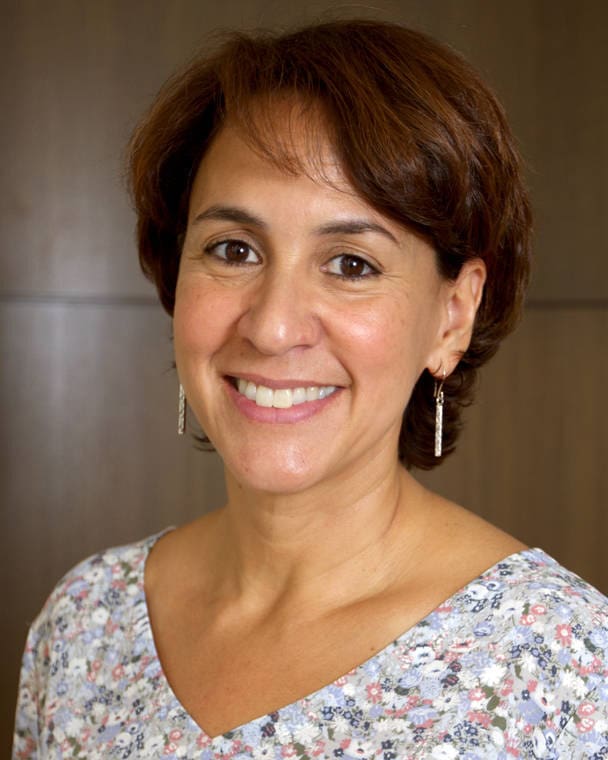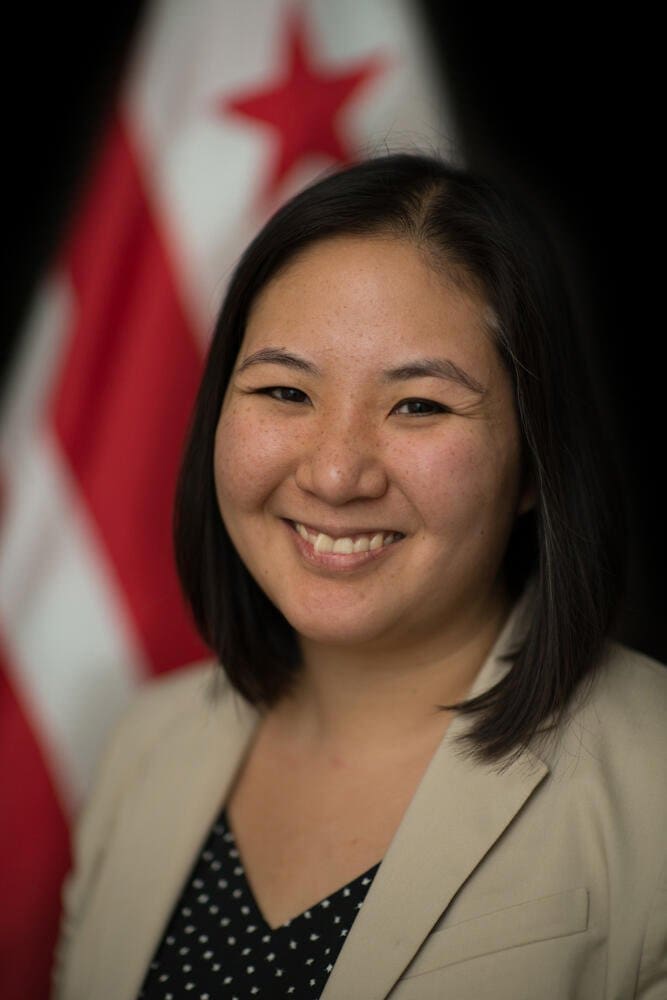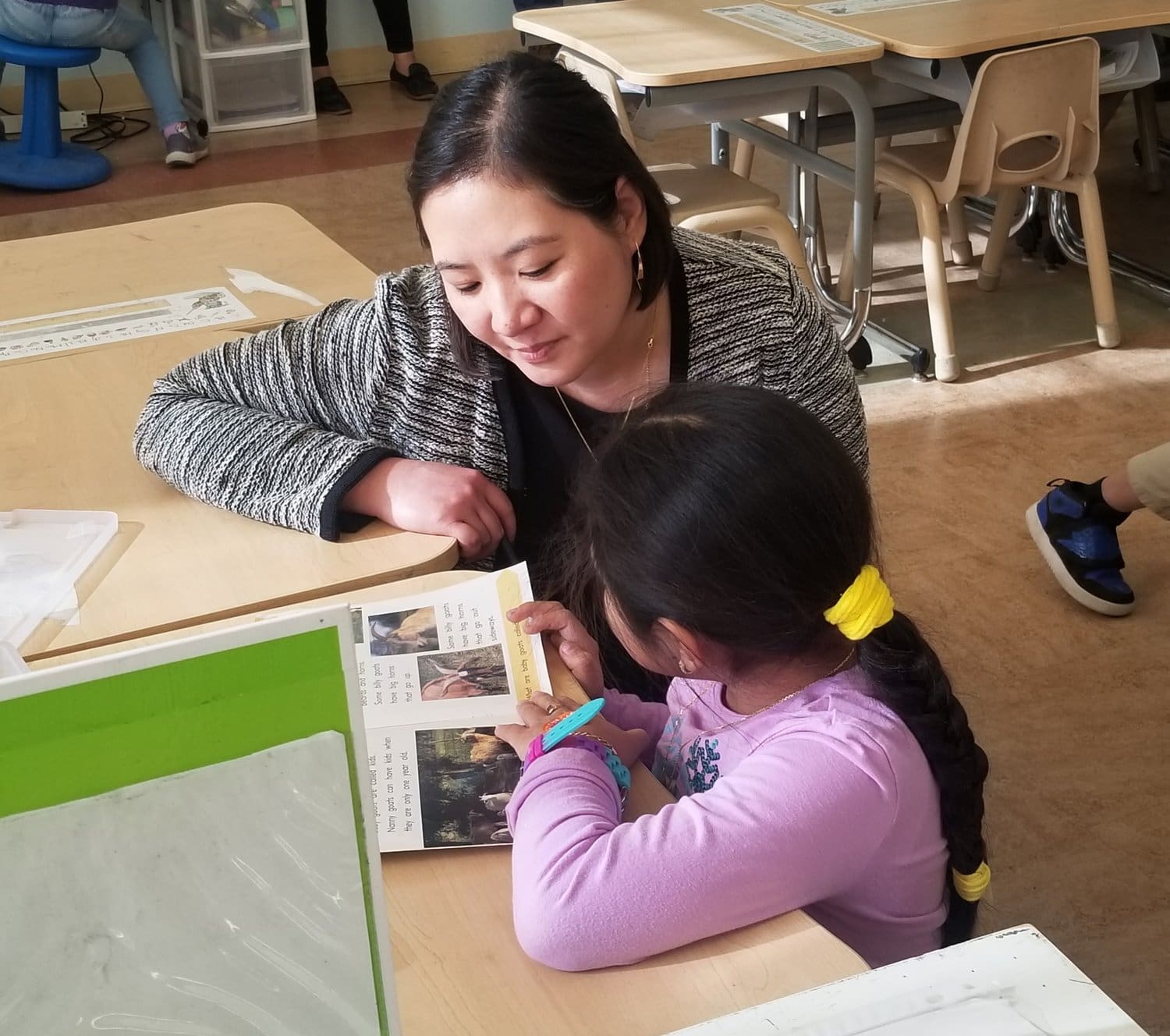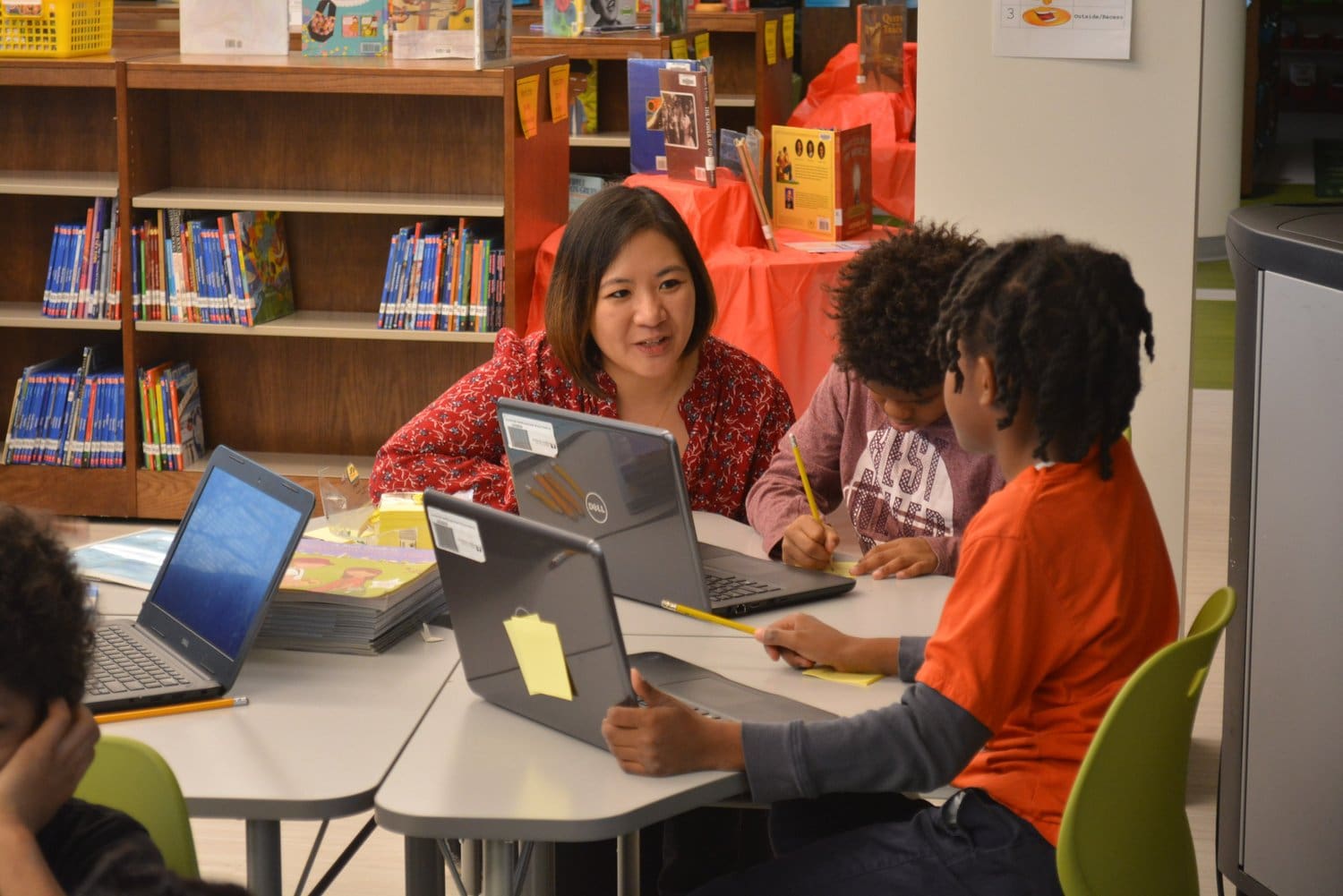The Stories We Tell Featuring Hanseul Kang – December 2021
 Happy Holidays! Welcome to the December edition of The Stories We Tell. I love this time of year when words such as peace, hope, and joy fill the airways. As we follow the discord in the national policy discussions that overshadow the realities and struggles of families today, I think we can agree that our nation needs a reconnection with peace, hope and joy!
Happy Holidays! Welcome to the December edition of The Stories We Tell. I love this time of year when words such as peace, hope, and joy fill the airways. As we follow the discord in the national policy discussions that overshadow the realities and struggles of families today, I think we can agree that our nation needs a reconnection with peace, hope and joy!
I encourage all of you who work ceaselessly on the equity front on behalf of our nation’s children and youth, to take the time to clear your minds, spend time with your loved ones, appreciate the beauty that is around you, and celebrate what is most important to you. You deserve this time! Your work in education is so incredibly appreciated – but I want you well, I want you happy, I want you joyful.
Just two days ago I returned from a week with my parents on the East Coast. I forced myself to adjust to their pace, their interests at this time in their lives, and their needs. It’s amazing how fast we move in our work and how hard it is to slow down. It was like a trip down memory lane as my parents talked about their pride for their five children, the great times we have always had together, and how much they love us. There was no mention of the hardships of poverty, the fears of living in a high crime area, the wakeful nights of waiting until all of us were home and the doors safely locked behind us. The only memories that stick for them are the joyful ones and I am eternally grateful that they have taught me this. The appreciation of what is good, what is now, what is still possible.
I am excited to end this year with a feature on a great leader, Hanseul Kang, who seems to always focus on the now and the possible. Despite all of her accomplishments, there is still great work that lies ahead for her. She has touched the lives of many children, educators, and leaders, and passionately continues to lead as a voice for equity. Read her story and add her to your network!
When we return in January, there are so many more stories to tell and opportunities to share! I want to thank all of the women leaders who have joined the Voice4Equity network. In 2022, the network will focus on several key policy areas such as the responsibility of search firms in dismantling gatekeeping of women’s access to the Superintendent seat, the power of women at the policy table, economic equity for women through early childhood access, girls in STEM, and school design innovation. The Voice4Equity network is organized as a national network of women education leaders, a rural educators network, and several district-specific policy leadership development groups. If you are a woman leading at the school, district or state level that wants to lend your voice to this women leaders network, connect with us here.
But now it’s time for rest, good food and celebrations! Voice4Equity wishes everyone a joyful holiday season! See you in 2022!
Christina
Follow Voice4Equity on Twitter @Voice4Equity!
HANSEUL KANG IS A VOICE FOR EQUITY
 To get to know Hanseul Kang you need to accept that she is deeply and unapologetically passionate about equity, but guarded around her own personal story. While she is a self-described introvert, with a certain quiet style, she has a depth of policy knowledge and breadth of experience that makes her leadership style firm, strategic and highly informed. I was fortunate to sit down with Hanseul recently at the Atticus bookstore on the Yale University campus where I got insight into the courage it takes to lead today.
To get to know Hanseul Kang you need to accept that she is deeply and unapologetically passionate about equity, but guarded around her own personal story. While she is a self-described introvert, with a certain quiet style, she has a depth of policy knowledge and breadth of experience that makes her leadership style firm, strategic and highly informed. I was fortunate to sit down with Hanseul recently at the Atticus bookstore on the Yale University campus where I got insight into the courage it takes to lead today.
Despite her quiet nature, in 2017 at the height of anti-immigration rhetoric, Hanseul unexpectedly shared a personal and painful part of her life through an Op-Ed in the Washington Post. This was during her tenure as DC State Superintendent *. In the midst of restless and sleepless nights brought on by the constant drumbeat of race-based conflict, Kang wrote an Op Ed where she shared her family story publicly. In it, she shared that at the age of sixteen, as she dreamed of attending Georgetown University, she learned that she was undocumented and would be ineligible for federal financial aid and a driver’s license. She shared how learning about her undocumented status as an immigrant from South Korea changed her from confident student to fear-filled and confused about her status in the only nation she knew since the tender age of 7-months. The lingering effects of that trauma, despite her eventual citizenship and education success that includes a JD from Harvard University, speaks to the challenges that today’s students who are subjected to bias and discrimination struggle with as they internalize what can become a self-debilitaing mindset about their intelligence, safety and opportunities. Yet, in 2017, as an already highly accomplished executive, Hanseul pushed against that learned fear. “We were at a point where our national politics and policies on immigration were in a really tough place. I couldn’t sleep and I was thinking about these young brave leaders who are in such vulnerable positions who were speaking out and I thought I wouldn’t be able to live with myself if I didn’t try to speak out too.” She could not remain silent as the hate-filled anti-immigrantion comments nationally became bolder with proposed legislation promising a future of continued arrests, deportations, and a national culture of white eurocentrism.
Hanseul disclosed her truth while serving in a key public leadership role. She did not know how it was going to be received in her professional and personal circles, but found that what was most shocking to her friends was that they did not know something about her that was so important to her story. “It was like they all of sudden understood why I was quiet and guarded in personal matters while so passionate about equity in my work.” It was a moment of change for Hanseul as she developed a deeper introspection of her equity voice and power. If anyone was troubled by her revelation, she never heard about it.

Hanseul’s entry into the State Superintendent role was well received. She recounts it as a good match between the needs of the organization at the time and her skills and experiences. Hanseul’s expertise and background, including her prior leadership role as Chief of Staff for the Tennessee Department of Education – one of the first two State winners of the Race to the Top grant, was attractive. She had the expertise and mindset to lead the restructure of OSSE, an operationally young (2008) public agency suffering from disjointed systems and high leadership turnover. OSSE was responsible for supporting over sixty local education agencies – district and charter organizations that serve over 90,000 students in the greater D.C. area. “They were looking for a person who understood what a state education agency should do and what role it should play in this broader ecosystem, recognizing that there are lots of other important players who are part of the ecosystem.” While her appointment was well received, it was not absent of bias. Hanseul hesitantly recounts what it was like for her as an Asian woman to take over a State Superintendent seat. There were the implicit and explicit biases couched in comments about Asian women as dispassionate leaders that created awkward moments of interactions. In a nation where only 27% of School Superintendents are women, 8.6% percent are leaders of color, and less than one percent are Asian women, Kang has an atypical ethnic background. (AASA 2020 Decennial Study) There were at least a few people who wondered whether by virtue of being Asian and female, that she would lead and think like a former Asian woman who had led in D.C. “Because we are Asian American women, because it was just based on identity, it was hard to hear.” The wondering was so shockingly couched in a stereotype about the assumed race and gender based style of an Asian woman leader that Hanseul answered her constituents as assuredly as she could without lingering on the question. This memory still makes her visibly uncomfortable. Yet, she believes that it’s important in her role “to create space for these conversations” about race and identity.

Through almost six years of consistent leadership, Hanseul provided a steady record of game-changing effective leadership, and boldness focused on empowering and supporting DC students. Hanseul left D.C. as a highly respected national leader. D.C. students made some of the country’s biggest gains in reading and math in 2019. In addition, a newly adopted state report card had improved transparency and accountability, and more cohesive leadership had delivered performance growth through clear standards for equity and excellence.
Like so many Superintendents during the COVID-19 pandemic, Hanseul left in fall 2020 changing her leadership course. Hanseul looks back at the past year in her new position at the Broad Center at Yale School of Management, and knows that the timing of her decision to leave DC was right. Always the consummate professional focused on students and her team, she did not want to wait until she experienced burnout before passing the baton to her successor. COVID-19 made the already difficult work of executive leadership even more mentally, emotionally and physically taxing, thus providing a time of reflection for her concerning next steps. “I could feel myself starting to get tired, in a cumulative way. It was really important to me to leave on my own terms. I didn’t want to reach a point where I couldn’t entertain new ideas and I couldn’t give the job my all, in a way that I wanted to. I wasn’t at that point but I thought it might be coming.”
Now Hanseul has transitioned from state education leader, to a role where she can prepare diverse cohorts of senior administrators for future state, charter and district Superintendent leadership through a three pillar focus on leadership development, research and policy. She is also ensuring that alumni or fellows of her program are supported while in their leadership role through various affinity groups including groups based on race, ethnicity and LGBTQ identity, and “helping fellows to sustain their work and sustain the change they are trying to create within their organizations.” The move from DC to New Haven was a significant one and her peers are now university professors and researchers that provide a new learning environment for her as she continues to develop her knowledge base and partnerships to advance her important work. Hanseul has a new perspective on her mission – she is intensely committed to preparing the next generation of equity-minded Superintendents that bring voice to students, particularly from historically underserved communities, while also mitigating the racial, ethnic and gender inequities that keep some groups of students from believing that they are great thinkers and learners.
Hanseul Kang is December’s voice for equity!
* While DC is not formally a state, the DC Office of the State Superintendent of Education (OSSE) serves as the state education agency for DC, overseeing federal grants, content standards and summative assessments, and data reporting, much like other state departments of education around the country. DC has more than 60 different local education agencies, including DC Public Schools and more than 60 public charter networks that each serve as their own local education agency in DC
————————————————————————————
Hanseul Kang is Assistant Dean and Executive Director of the Broad Center at the Yale School of Management in New Haven, CT. She previously served as the District of Columbia State Superintendent of Education from 2015-2020. Hanseul Kang has her J.D. from Harvard Law School. Follow Hanseul on Twitter @HanseulKang
POLICY LEADERSHIP OPPORTUNITY

Are you a Superintendent or Assistant Superintendent interested in growing your equity policy leadership expertise? Then join the Women Superintendents Policy Leadership Academy (WSPLA) from the the Association of Latino Administrators and Superintendents! The WSPLA is only one semester long and will kick off in-person at the 2022 ALAS Education Conclave in Atlanta Georgia on January 21st, followed by four on-line sessions. Dr. Kishimoto will be leading the WSPLA.
If you are a Superintendent, you do NOT need a letter of reference or support.
See you in Atlanta!

